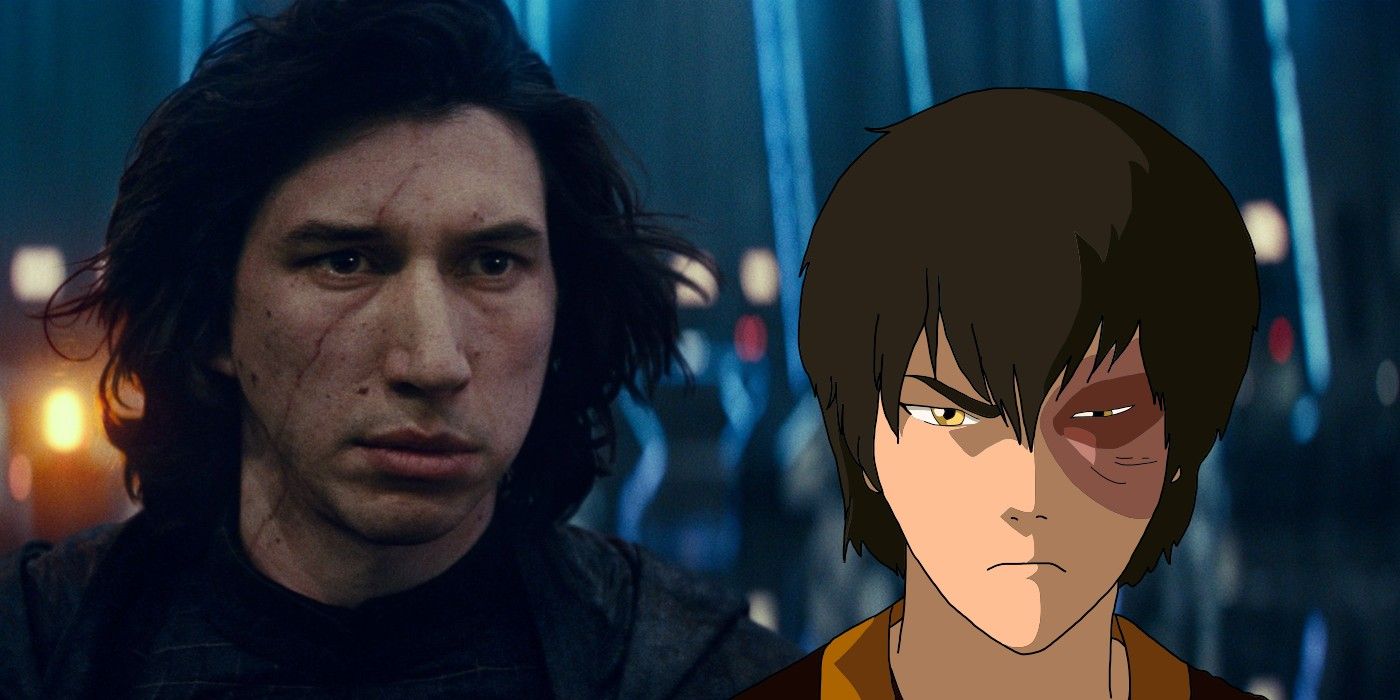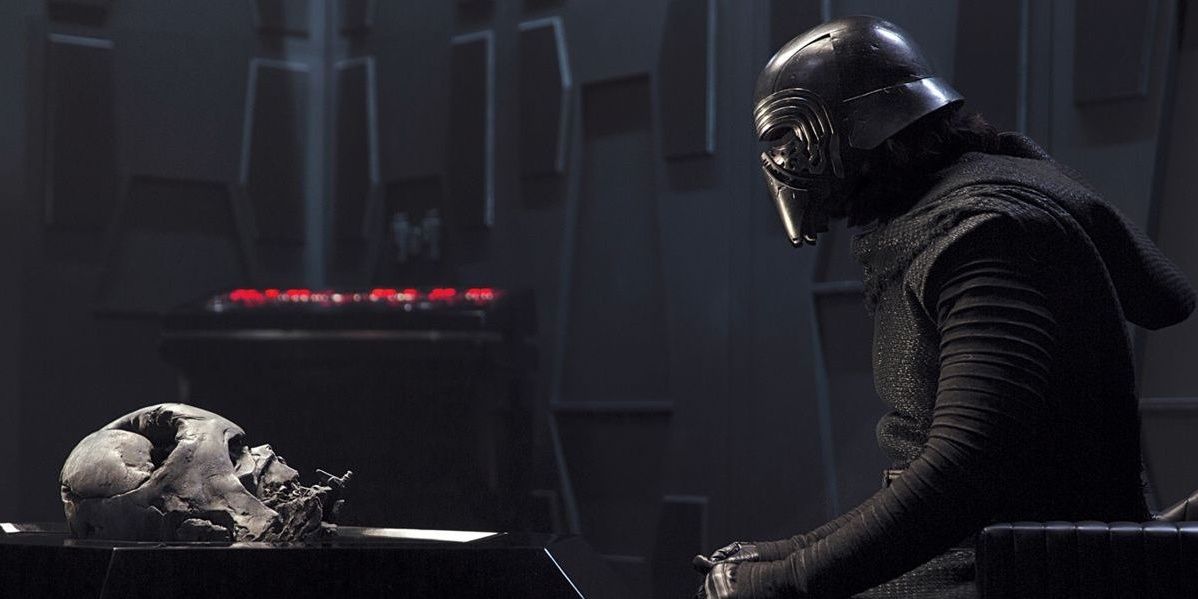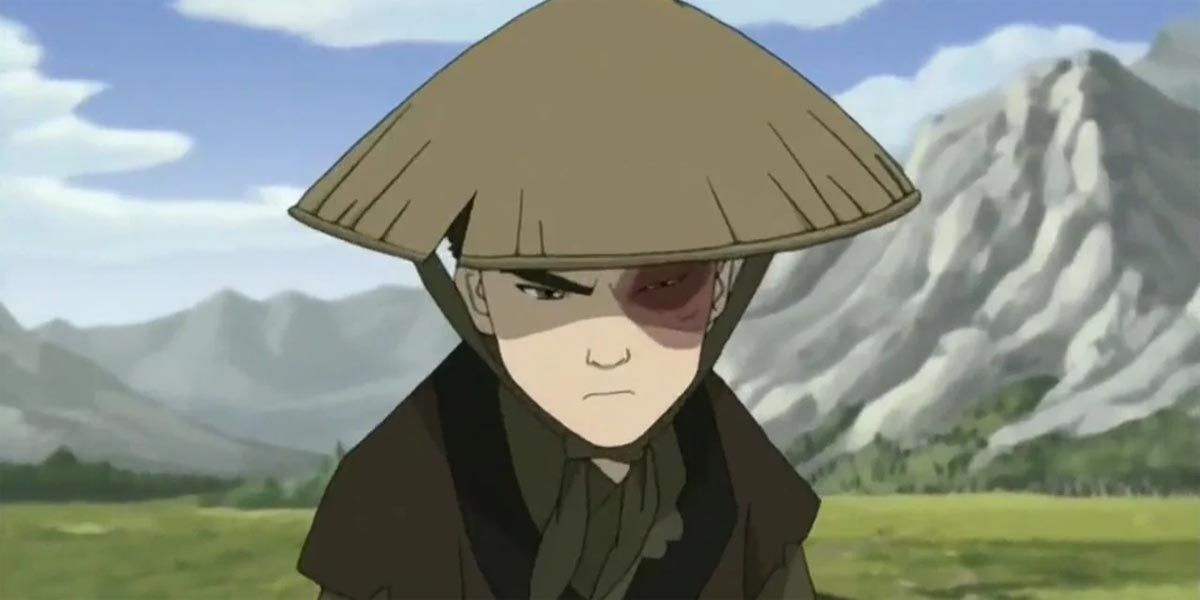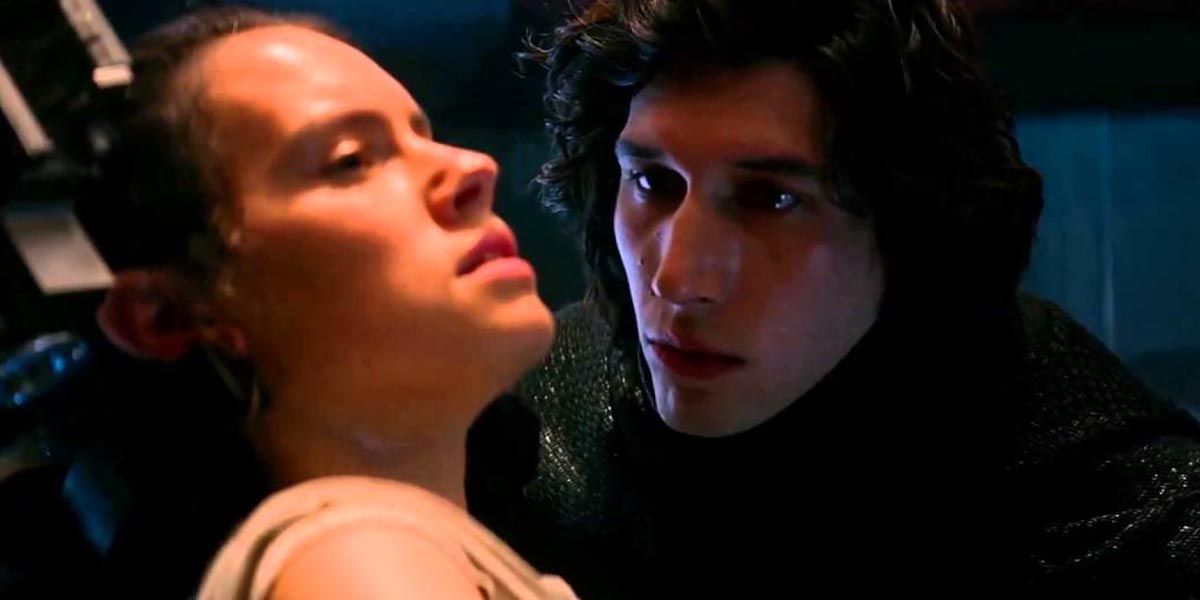Since audiences met Kylo Ren, many have drawn comparisons between him and Prince Zuko from Avatar: The Last Airbender. Both are introduced as anger-filled villains who represent oppressive ideologies and fit the bad boy character type. The comparisons went further after The Rise of Skywalker attempted to redeem Kylo, but it was met with negative reactions from fans. Zuko’s redemption arc, on the other hand, is praised and considered a major aspect of the show’s lasting legacy. Despite their similarities, it's clear why Zuko's arc was a success and why Kylo's needs improvement.
It's important to see where both of these characters were prior to the events of their respected series to best understand how their arcs unfold. Before Star Wars: The Force Awakens, Kylo, who is Han and Leia's son, trained under Luke and was almost killed by him, which leads him to the dark side. The films don't go in depth about these relationships, but the audience is already familiar with his family since Han, Leia and Luke have been fan favorites for over 30 years, so audiences have little reason to doubt Kylo' upbringing.
Avatar: The Last Airbender on the other hand goes in depth about Zuko’s abusive relationship with his father. The audience understands how his world view and sense of self are distorted because of this, and they know that in a better environment Zuko could've been a different person. Furthermore, the turning point in his life prior to the series is the result of a selfless act, which he is punished for. Through this information, the audience knows there’s good in Zuko even if he’s not showing it in the beginning.
Kylo’s turning point is when he sees Luke about to kill him, and fans understand how he could distrust Luke from this perspective, but they also get Luke’s side of the story. Since Luke spent a trilogy proving himself as a hero, viewers trust him when he says Kylo has darkness in him. If the audience didn't have Luke’s perspective, they would question him like Kylo does. Kylo also responds to this event by burning down the temple and killing the other students, who the audience has no reason to believe are at fault, and this proves validates Luke's assumption.
Audiences could empathize with Kylo if the films focused on the faults of the heroes who raised him. If the movies showed that he didn’t grow up in an ideal environment, the audience would have an easier time believing he has the potential for good in him. Instead, they can only wonder how he grew up with Luke, Leia and Han but managed to idolize Vader and commit crimes similar to his.
Kylo’s actions throughout the films don’t do much to convince the audience that there’s good in him either. In The Force Awakens, he destroys a planet and kills his father in cold blood. In The Last Jedi, Rey explores the possibility of good with him through their connection but that’s revealed to be a trap.
Meanwhile, Zuko shows redeeming qualities through his actions. On multiple occasions, he sets aside his own goals for the betterment of others. This good side is further personified when he spends a solid chunk of the series as a refugee. In this time, he faces even more consequences of the power he represented. He learns what he was raised to believe doesn’t line up with reality and has a severe impact others.
Kylo never gets this opportunity for growth. Instead, he either orders soldiers to commit mass murder or he does it himself at the beginning of every film he appears in. The closest he comes to facing consequences is hesitating to kill Leia which, again, is a relationship the audience doesn’t have a lot of context for.
There is also a bigger enemy Zuko shares with the main heroes of Avatar: The Last Airbender. Commander Zhao and Princess Azula exceed Zuko in strategy, resources and ruthlessness. They make Zuko the hero of his own story, and they have similar backgrounds so the audience has a metric to judge him against.
Star Wars never has a character like this for Kylo. The closest thing is Supreme Leader Snoke, but he isn’t shown to be much of a threat considering the fact that he sits in a chair for two films before Kylo kills him. While Snoke can represent what Kylo is conflicted about, Kylo kills him just to take his place, which is not the same response Zuko has when confronting his inner conflict. Despite going back to the Fire Nation, Zuko is always subservient to his father, which leads to a major difference between these characters.
Zuko does not stands by the ideologies he is struggling against, but Kylo Ren does. Zuko never commands a siege or orders a massacre the same way his father, Zhao or Azula does, but Kylo shows little to no guilt when he does just this. While Zuko is a result of being surrounded by a harmful ideology, Kylo works to uphold these toxic beliefs. Without a solid reason to doubt his actions, Kylo’s decisions at the end of The Last Jedi should’ve solidified his allegiance and made him unredeemable.
Kylo Ren spends the series ruling the galaxy with an iron fist and committing mass murder, and the wrong he’s done is too much for a single act of good to earn him redemption. His guilt isn’t compelling since he hasn’t dealt with it for a film and a half, and fleshing out his backstory would’ve benefited him by adding a layer of complexity to his characters.
The Rise of Skywalker had the opportunity to defy expectations and make Kylo a truly menacing villain, but the series spends so much time building him up as the bad guy only to give him a redemption arc in the end. Meanwhile, Zuko’s arc is a great example on how to build empathy and develop a character, and it also lays out why viewers should believe in him. The latest Star Wars trilogy, on the other hand, forces Kylo Ren to be something he’s not.




